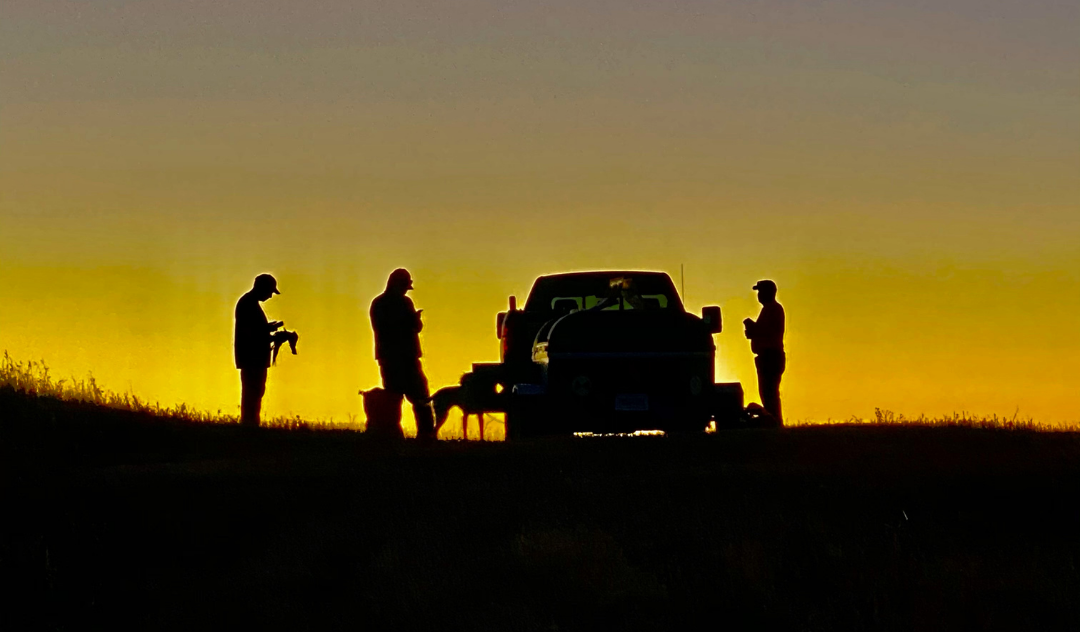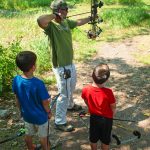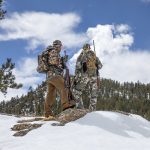The global 30×30 initiative presents opportunities—and challenges—for the hunting community.
If you read Sports Afield, chances are you hunt and fish. There’s also a good chance you get wind of the constant flow of information about laws, regulations, and legislative proposals that impact your ability to hunt and fish. Depending on how you choose to spend your time in the field or on the water and where you do it, some of these policies impact you and some won’t. Occasionally, something big comes along that has the potential to impact all of it–sometimes for the better and other times not.
With constant buzz of the 24-hour news cycle in the background, it can be tough to keep things straight, but there’s a big one on the horizon. Here’s a quick synopsis—the 30 by 30 Initiative (30×30 initiative) is a multi-national campaign to protect 30 percent of the world’s lands and waters across the globe by the year 2030. Here at home, President Biden issued an Executive Order in January that establish the 30 percent target by 2030 in the United States. At the risk of stating the obvious, the global goal is an incredibly ambitious target. Here in the U.S., it’s raising some eyebrows as well as some questions. How will this goal be achieved? How much of the U.S. is already “protected”? How will pursuit of these goals impact private landowners and public lands? Most importantly for us, how will this impact hunting- and fishing-driven conservation?
Having invested more in conservation than any other stakeholder, these are just a few of the questions we as hunters and anglers should be asking now, before others define 30×30 for us. As sustainable use practitioners and advocates, engaging on 30×30 is tricky because 1) some of 30×30’s biggest cheerleaders have a hard time admitting that hunting and fishing drive conservation and 2) the initiative’s biggest champions have defined the objective without telling anyone how they plan to get there. When it comes to political decision making, this lack of definition represents both challenge and opportunity.
Fortunately, the sporting conservation community isn’t waiting for these folks to tell policymakers what we already know: how to successfully conserve land, water, fish, and wildlife while meeting the needs of people through management and sustainable use.
Hunters and anglers are the original conservationists of our land, water, and natural resources. The contributions that hunters and anglers make to conservation in America derive from the American System of Conservation Funding a “user pays–public benefits” program. Since 1939, conservation funding has been provided through hunting and fishing license sales and excise taxes on ammunition, firearms, fishing tackle, boat fuel, and other equipment necessary to engage in hunting and angling activities. We were also at the forefront of recent victories like the Great American Outdoors Act, which provides an injection of funding for landscape conservation, in addition to increased public land access. We’re also pushing hard to drive resources to the conservation of game and non-game species through the Recovering America’s Wildlife Act.
Sportsmen and women have a duty to become engaged in the conversation about 30×30. It is essential policy makers understand and appreciate the role that sportsmen and women play in conservation and biodiversity of our lands, water, fish and wildlife. If the sporting conservation community does not ensure that measures taken in pursuit of 30×30 objectives do not constitute restrictions on hunting and angling access, we risk losing the invaluable opportunities and resources that we have willingly conserved for decades.
As an effort to engage the sporting conservation community in the global 30×30 Initiative, the Congressional Sportsmen’s Foundation (CSF), with other leading conservation organizations, established the “Hunt Fish 30×30” coalition to augment the voices of America’s sportsmen and women and highlight the vitality of being a part of this conversation as America’s original conservationists. The coalition consists of more than fifty conservation organizations that are committed to the role sportsmen and women play in biodiversity conservation. On the coalition’s website, huntfish3030.com, the public can learn about the role that sportsmen and women play in supporting biodiversity. HuntFish3030.com is an educational resource for the public and encourages hunters and anglers to continue our conservation legacy by being a part of the 30×30 conversation.
Sportsmen and women can effectively participate in the Hunt Fish 30×30 Initiative to illustrate how they already contribute to biodiversity conservation and their unique role in nature. The Hunt Fish 30×30 coalition has established a petition for individuals to sign to recognize the importance of hunting and fishing and the future of conservation and biodiversity. This petition encourages lawmakers to support policies that promote biodiversity while protecting access to our lands and waters. Additionally, follow CSF’s updates, communication, and social media about the Hunt Fish 3030 effort and the variety of 30×30 proposals–some good, some bad–across the country.
Hunting and fishing fuel our nation’s economy, conservation, and passions. There is no other stakeholder group more familiar with, or dedicated to, conservation and biodiversity through the activities of hunting and fishing. Sportsmen and women should ensure that conservation—and our role that has made conservation so profound—remains a priority as lawmakers consider 30×30 policies. Our commitment is derived from an appreciation for the healthy habitats that provide hunting and fishing endeavors and leave the world a better place.
Finally, we need to accept that the struggle to keep hunting and fishing firmly established as a cornerstone of conservation isn’t going away anytime soon. 30×30 is just the latest battle and we need to be united, informed, and active to ensure that our legacy remains intact. I strongly encourage you to take the first step and sign the Hunt Fish 30×30 petition today at huntfish3030.com/petition. — Jeff Crane, President and CEO of the Congressional Sportsmen’s Foundation
About Jeff Crane and the Congressional Sportsmen’s Foundation
Jeff Crane has been at CSF for nearly two decades and brings nearly 40 years of experience in on-the-ground natural resource management and policy expertise at the federal, state and international levels. A life-long outdoorsman, he has experience developing wildlife habitat management plans in the United States and South Africa, where he obtained his professional hunter’s license and guided hunts for big game animals. Jeff currently resides in Maryland where he continues to pursue the hunting and fishing lifestyle.
Since 1989, the Congressional Sportsmen’s Foundation (CSF) has become the nation’s most respected and leading sportsmen’s organization in the political arena. CSF’s mission is to work with Congress, governors, and state legislatures to protect and advance hunting, angling, recreational shooting and trapping. CSF works closely with the Congressional Sportsmen’s Caucus, the Governors Sportsmen’s Caucus, and the National Assembly of Sportsmen’s Caucuses, which is a collective force serving as an unprecedented network of pro-sportsmen elected officials that advance the interests of America’s hunters and anglers. Learn more about CSF and their latest work at congressionalsportsmen.org.











